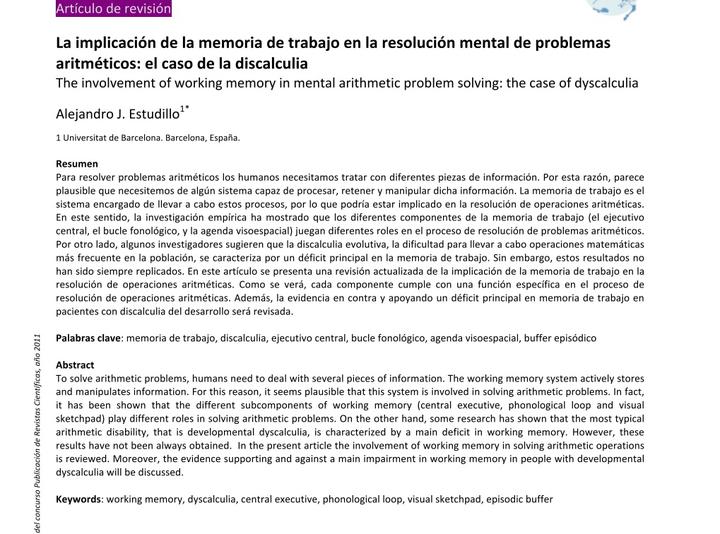The involvement of working memory in mental arithmetic problem solving: the case of dyscalculia

Abstract
To solve arithmetic problems, humans need to deal with several pieces of information. The working memory system actively stores and manipulates information. For this reason, it seems plausible that this system is involved in solving arithmetic problems. In fact, it has been shown that the different subcomponents of working memory (central executive, phonological loop and visual sketchpad) play different roles in solving arithmetic problems. On the other hand, some research has shown that the most typical arithmetic disability, that is developmental dyscalculia, is characterized by a main deficit in working memory. However, these results have not been always obtained. In the present article the involvement of working memory in solving arithmetic operations is reviewed. Moreover, the evidence supporting and against a main impairment in working memory in people with developmental dyscalculia will be discussed.